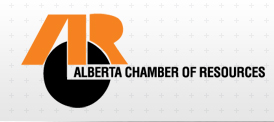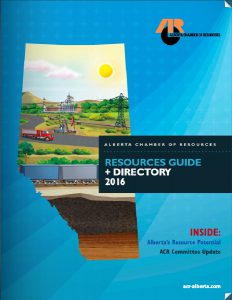When the Going Gets Tough, Smart Advertisers Dig In
When the going gets tough, advertising budgets tend to be one of the first things cut. Associations that publish advertiser-supported media may hesitate to continue asking for advertising dollars during an economic recession or crisis, but as Sir Martin Sorrell of WPP noted in 2009, it often costs firms more in the long run to recover the resulting lost ground.
Want proof? During the 1949, 1954, 1958 and 1961 U.S. economic recessions, sales and profits dropped for companies who cut back their advertising. After the recession, those companies continued to lag behind the ones that had maintained their advertising budgets.
All right, you’re saying, but all companies experienced a decline in sales and had trouble catching up to pre-recession forecasts. Not quite: “confident advertisers” who maintained their advertising spend during the 1974-1975 recession showed a five-year average increase in sales of 132% vs. a 79% increase for “cautious advertisers” who cut their ad spend during the recession.
Clearly, there is good reason for supplier members or external vendors to continue advertising with your association during an economic downturn. At the same time, your association should not be shy about continuing to ask for their advertising and marketing dollars.
Because so many companies do cut their advertising or take their advertising profile down a few notches, an economic recession is a good opportunity for smaller businesses or associate members to gain the attention of your regular members. Less competition for space combined with a willingness to continue investing in an organization that invests in its members recession-in, recession-out can lead to an increased market share.
“Moments of economic turbulence provide the unique opportunity to start new businesses, launch disruptive new products, and strengthen customer loyalty – often at a discount,” writes Andrew J. Razeghi, professor at Northwestern University’s Kellogg School of Management. Don’t downplay this opportunity for your smaller members and vendors – shout it loud that your publications are still open for business!
Alberta Chamber of Resources Stays the Publishing Course
 Case in point: 2016 has been a rough year for businesses that rely on natural resources in Alberta, Canada. Oil well drilling is the main economic driver in Alberta, so members of the Alberta Chamber of Resources (ACR) were already significantly impacted by the worldwide drop in oil prices. In addition, the province was ravished by wildfires in May 2016. In Fort McMurray alone, 80,000 residents were evacuated, 1,600 structures were confirmed lost and entire neighborhoods were leveled.
Case in point: 2016 has been a rough year for businesses that rely on natural resources in Alberta, Canada. Oil well drilling is the main economic driver in Alberta, so members of the Alberta Chamber of Resources (ACR) were already significantly impacted by the worldwide drop in oil prices. In addition, the province was ravished by wildfires in May 2016. In Fort McMurray alone, 80,000 residents were evacuated, 1,600 structures were confirmed lost and entire neighborhoods were leveled.
This association approached our company requesting that Naylor cease publishing their print magazine because they wanted to be sensitive to their members and didn’t want to ask their members for money during such a difficult time

However, this local but highly impactful economic crisis necessitated that ACR reach out to and reassure members, local businesses, and the families that depend on them even more. Our leadership team reviewed all the reasons their members needed to hear from the association during this difficult time, and reinforced the idea that the association’s content in their resource guide and directory was more valuable than ever for members trying to find connections and business resources.
Then we discussed the likelihood that their associate members may actually want the opportunity to advertise. Especially during a recession, businesses need a way to put their name in front of potential customers via a trusted channel. Once the decision to continue pursuing advertising dollars was mutually agreed upon by Naylor and ACR, we spent time training our sales team to be compassionate and gentle in their approach to regional advertisers whose revenues may have been affected by natural disaster or the drop in natural resource prices. In addition, we took some cost saving precautions noted later in the article to reassure ACR that we have every intention of preserving the economic viability of their resource guide.
“In the end we were able to put out an informative publication that was well supported by advertising,” said Kim Davies, group publisher at Naylor who oversees the Alberta Chamber of Resources account.
Best Practices for Association Communication During an Economic Recession:
Conserve Costs:
- Cut unnecessary distribution of your publications. If you’re sending multiple copies (especially printed copies that have a significantly higher cost than digital) to groups or businesses consider cutting back to less copies per business. If you have surplus copies that are bulk distributed to you association, consider reducing for the short term.
- Decrease the size of your publication for a limited time. Decreasing the size will decrease the cost to produce your print publication. You can do this by cutting one of your standard articles temporarily or work with your designer and get creative! Using fewer pictures and less white space within your printed communications to allow for maximum content in fewer pages can be a short term way to cut costs when times are tight. Again, this advice applies only to printed pieces because digital costs remain roughly the same no matter the design.
- Use online media to communicate more. Has your association been thinking about starting a new eNewsletter, video platform or social media page? A budget rollback presents a great opportunity to take that plunge. You may have more upfront costs in terms of online services you must purchase to get some platforms off the ground, or staff time to invest, but online communications are almost always less expensive to maintain once they are established.

- Update your website more frequently with new content. Speaking of using online media to communicate more, why not take a hard look at your existing website and see how your association can improve it? Invest some time and design change into your website and you can turn it into the information hub for members and industry influencers you’ve always imagined it could be.
- Likewise, an economic downturn might be just the push you needed to launch a a magazine microsite. Many associations publish a companion website for their print magazine where readers can go in between issues for topic updates and breaking industry news. Consider this option if you have a tech-comfortable readership, and if you need to consider the following cost-saving point:
- Decrease your print frequency. Instead of a quarterly periodical, try publishing two issues per year to cut down on costs without giving up your print publication entirely. Members might miss the frequency of information they receive. However, one of the upsides to paring down your publishing schedule is your writers have more time to dig deeper into the issues you report, and your designers have more time to make an issue look its best. Carol Miller discusses this benefit of a less-frequent publishing schedule in her Corner Office profile.
Customize Content:
- Share member spotlights or vignettes within your communications. How are other members coping and working through the economic challenge? Concrete examples of real people and organizations coming up with creative solutions go a long way toward reassuring everyone that the industry will pull through.
- Seek out companies willing to be case study subjects. Similar to member spotlights above, case studies of organizations that have successfully navigated past recessions or have come up with solutions they plan to stick with even after the current recession is over are a great teaching tool for organizations feeling stuck. Seeing other companies succeed is a great motivator to try something new. Case studies also show that you, the association, support your members’ accomplishments and are eager to provide a pedestal to showcase those successes.
- Beef up your legislative news: The main question on every business owners’ mind during a recession or crisis: What will tomorrow look like? Help your members arm themselves with as much information as they want about the regulatory or funding changes coming out of government at all levels in response to the current economic situation. This type of information helps your members plan their future inventory, hiring practices and service offerings.

Take a Compassionate, Educated Approach to Advertising:
- Educate your sales team about the economic challenges your members/industry are facing. Be empathetic and compassionate to budgetary constraints of associate members and suppliers. Offer greater member advertising discounts. Discuss maintaining a presence but downsizing their advertisement if necessary.
- Don’t feel bad about inviting your members to advertise. We have had associations suggest that they stop publishing for a period of time because they don’t want to ask their supplier members for advertising revenue. Supplier members still need customers during a recession. They still need to remind potential customers that they are to serve. There is still a need for advertising and every association will have suppliers/vendors willing to continue investing – especially in an organization like yours that continues to represent the industry’s best interests.

Don’t Stop Believing – or Communicating
The best advice I can give to associations whose industry is experiencing an economic downturn is to increase your communication! When your members’ world turns upside down they look to your association for leadership. They need your direction, your industry reporting, data and insight. They need to hear success stories and to be connected with consultants, experts, vendors and suppliers who can help them navigate changing expectations and projections.
Reassure them through your media. Show them that you are making positive, data-driven changes to the way you serve them. Show them you are in communication with elected officials to help ensure that the industry will make it to the other side relatively unscathed, prepared for whatever new reality develops, and ready to continue fighting for them and their businesses like you always have.

